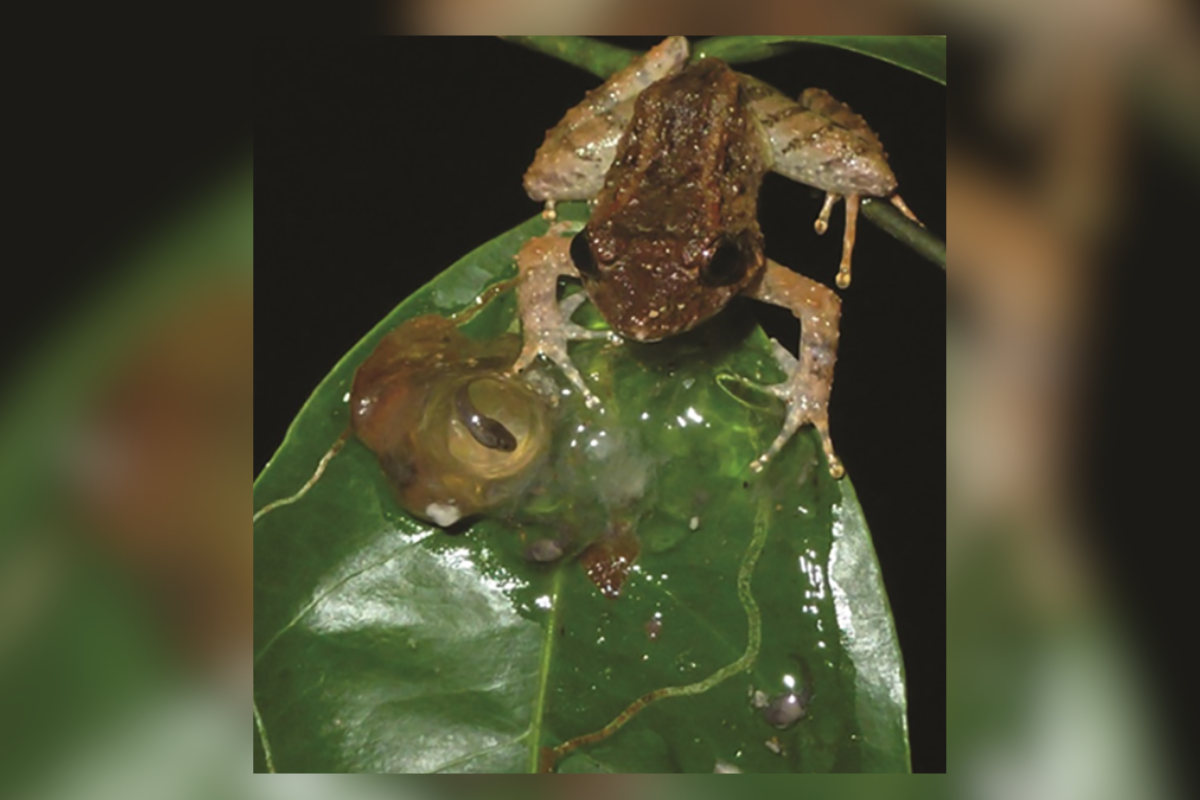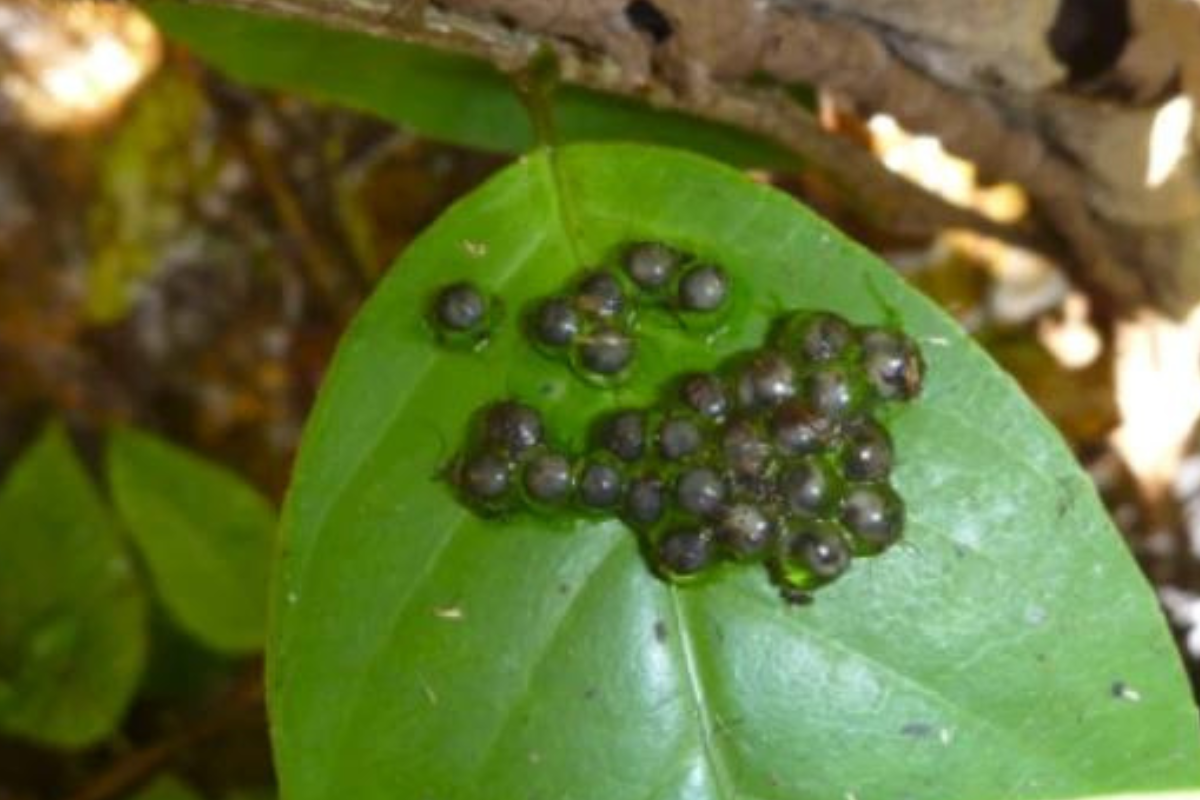

When most people think of a frog, they imagine tiny amphibians hopping in and out of water. Teeth don’t usually come to mind. However, biologists found a new species that has fangs.
Videos by Outdoors with Bear Grylls
Researchers say most frogs have teeth, but multiple species in Indonesia have two bony “fangs” coming out of their lower jaw. The animals use it to fight over territory, mates, and hunt things like centipedes and crabs.
A new study in the PLOS ONE journal highlights the newly discovered frog as the smallest of its family of fanged frogs. The newly discovered species is about the size of a quarter, and most of the frogs related to it are massive (for a frog) and easily top two pounds.
A Fascinating Frog Discovery
Researchers with the Bogor Zoology Museum, which is associated with Berkeley, made the discovery on the island of Sulawesi, a rugged, mountain-covered island that is part of Indonesia. They first located the animal’s eggs, which were on a leaf rather than in the water.
“Normally when we’re looking for frogs, we’re scanning the margins of stream banks or wading through streams to spot them directly in the water,” says Jeff Frederick, the study’s lead author, who conducted the research as a doctoral candidate at the University of California, Berkeley. “After repeatedly monitoring the nests though, the team started to find attending frogs sitting on leaves hugging their little nests.”

The study found that this newly discovered species lays its eggs on land and then protects them rather than dumping and leaving them in the water. Even more surprising, the frogs protecting the eggs were all males.
Researchers believe the unique egg-laying habits of the species help it survive. Basically, being so small is a disadvantage against the other frogs in the area. The best thing the species can do is avoid these other frogs altogether. The practice protects the future of this distinctive tiny frog.
“Our findings also underscore the importance of conserving these very special tropical habitats. Most of the animals that live in places like Sulawesi are quite unique, and habitat destruction is an ever-looming conservation issue for preserving the hyper-diversity of species we find there,” says Fredrick. “Learning about animals like these frogs that are found nowhere else on Earth helps make the case for protecting these valuable ecosystems.”









